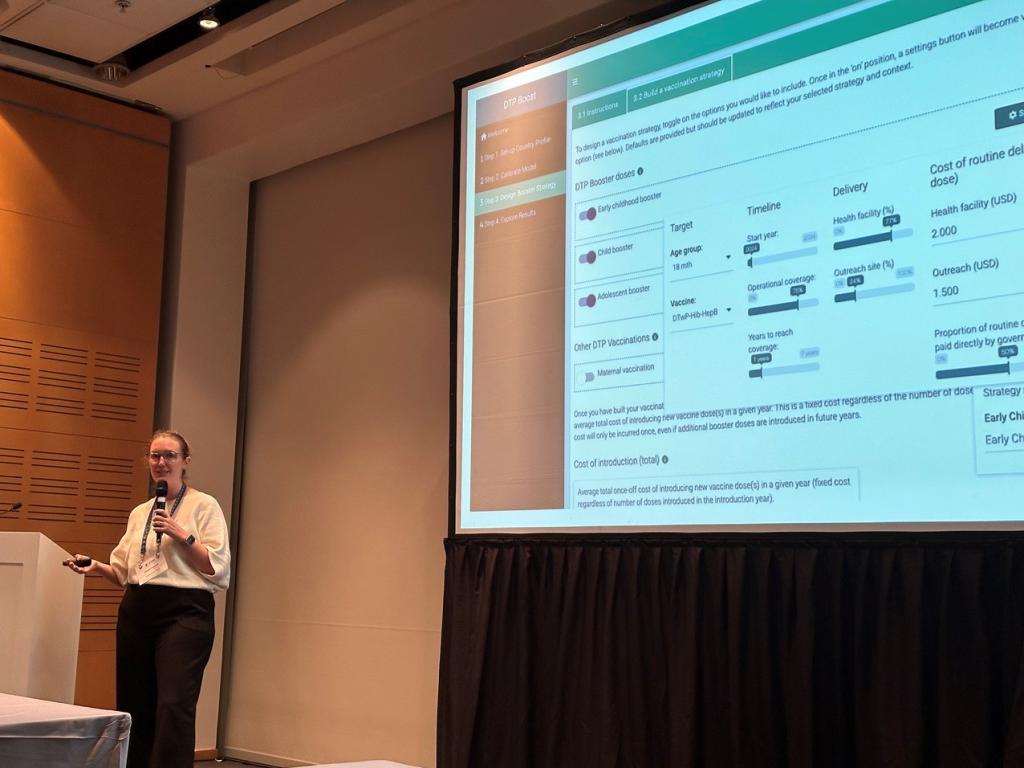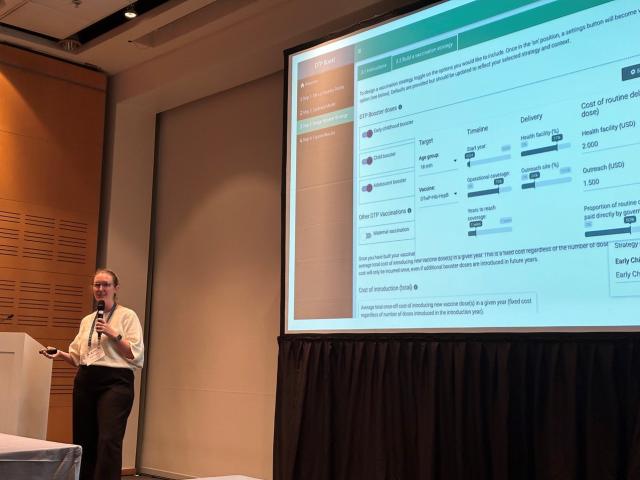MASHA at the 2023 International Health Economics Association (IHEA) congress

MASHA at the 2023 International Health Economics Association (IHEA) congress
The International Health Economics Association (IHEA) is a non-profit membership organisation founded in 1994, composed of health economists from across 100 countries. The organisation hosts a congress every second year for members and non-members alike. The 15th World congress was hosted by the UCT Health Economics unit from 8-12 July 2023, and held at the Cape Town International Convention centre. Director Prof Sheetal Silal and researcher Ms Rachel Hounsell represented the Modelling and Simulation Hub, Africa (MASHA) at this prestigious event.
The World Health Organization (WHO) recommends the use of vaccine booster doses against diphtheria, tetanus, and pertussis. Unfortunately, low- and middle- income countries (LMICs) are resource constrained and could benefit from an informed strategy to introduce booster doses. During the congress, Ms Hounsell demonstrated the DTP Boost app, a web-based interactive tool designed to generate country-specific evidence by exploring the epidemiological impact and economic benefits of introducing the diphtheria-tetanus-pertussis (DTP) booster vaccines into the existing Expanded Program on Immunization (EPI). The app was developed in partnership with the US Centre for Disease Control and Prevention (CDC) and the African Field Epidemiology Network (AFENET). It provides valuable evidence for health providers to develop a roll-out plan for the DTP booster implementation. She also referred to the lessons learnt from the app’s ongoing pilot with the Ugandan National Expanded Program for Immunization (UNEPI).

Ms Hounsell was also invited to present on a panel at the Immunization Economics Special Interest Group pre-congress workshop on “Next questions in costing and modelling methods”. The panel discussed key challenges, lessons, methodological guidance and future research directions for costing the burden of illness for vaccine preventable diseases. This two-day event convened over 150 participants from 42 countries; bringing together early-career to seasoned researchers from academic institutions, NGOs, and multinational organizations to exchange knowledge on the latest research methods and approaches in immunization costing, financing, economics, and decision-making.
Prof Silal presented on MASHA’s work supporting sustainable health financing through mathematical modelling, and capacity building by training modellers across sub-Saharan Africa for work that generates evidence for policy makers. She also described the opportunities at MASHA for student research to address policy relevant questions and explore government datasets, specifically through the Malaria Modelling & Analytics Leaders in Africa (MMALA) and Department of Statistical Sciences (STA) Clinton Health Access Initiative (CHAI) Internship programmes. The MMALA programme hosts 13 PhD students and 3 post-doctoral researchers, whilst STA-CHAI has supported 8 MSc students since 2022.
Lastly, researchers from the WHO, University of Utah and the London School of Hygiene and Tropical Medicine (LSHTM) presented meta-analyses of economic evaluations of vaccines for decision-making. They presented the methodological approach of the meta-analysis, and a case study of pooled evidence from economic evaluations on influenza vaccination in the elderly and healthcare workers. The researchers also presented the challenge of heterogeneity in meta-analyses due to methodological factors model parameters, and recommendations to address these. Prof Silal served as the discussant for this topic, guiding the conversation around the benefits, validity, and appropriateness of meta-analyses. She highlighted gaps in traditional clinical meta-analyses compared to meta-analyses of economic evaluations: guidance required for the technical implementation, and additional methodology that is lacking. These insights for healthcare leaders and programme designers serve to identify gaps and explore the implications of economic research findings on healthcare policy and practice.
